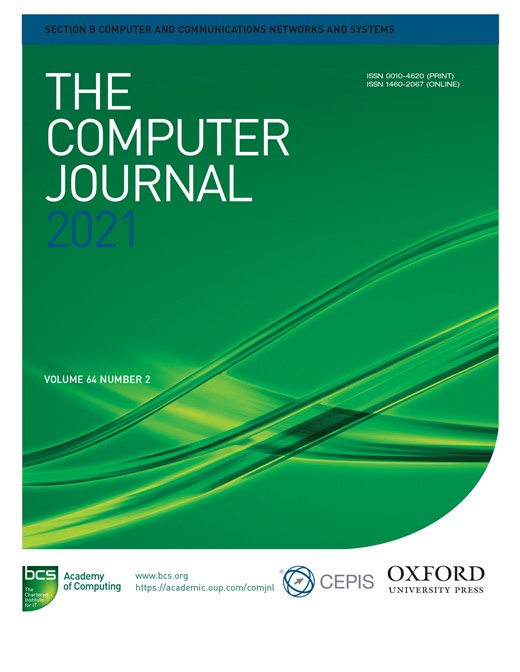-
Views
-
Cite
Cite
Nithya B, Naveen Ranjan, Justin Gopinath A, Performance Analysis of Prioritization and Contention Control Algorithm in Wireless Body Area Networks, The Computer Journal, Volume 64, Issue 2, February 2021, Pages 211–223, https://doi.org/10.1093/comjnl/bxaa147
Close - Share Icon Share
Abstract
A Wireless Body Area Network (WBAN) is the composition of a group of energy-efficient, miniature, invasive/non-invasive, light-weighted sensors that monitor human body health conditions for early detection and treatment for life-threatening diseases. Due to the stringent demands of WBAN, such as energy efficiency, reliability and low delay, the development of an efficient contention control algorithm is exceptionally crucial that aims to maximize throughput by reducing collisions. In this context, this paper proposes an adaptive algorithm, namely, Prioritization and Contention Control (PCC) algorithm, to minimize collisions, latency and energy consumption. The first phase of the proposed algorithm prioritizes sensors using run-time metrics to grant channel access only for the potential nodes to send their data. It leads to a lesser number of collisions among sensors, thereby reducing retransmission attempts. In the second phase, the Contention Window (CW) size is predicted using queue length and collision rate that accurately mimic the current channel status. The dynamic estimation of CW aids in minimizing channel access delay, collisions and energy consumption, thereby enhancing overall network performance. The performance of the proposed PCC algorithm is validated with the 2D Markov model and NS2 simulation in terms of throughput, packet delivery ratio, delay and remaining energy.




